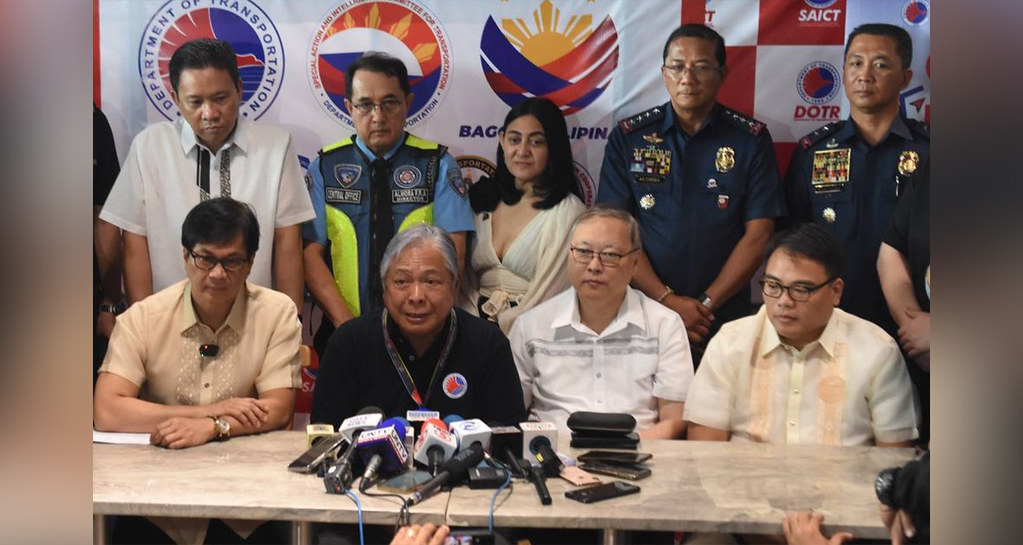EMPOWERING THE FUTURE: Atty. Juan Paolo Villonco, the pioneer Filipino Stanford Law graduate and President of Astro Robotics, joins hands with Jin Tomioka, CEO and Co-founder of Telexistence, a leading global tech company, to drive innovative growth and place the Philippines on the map of the emerging tech revolution. Pictured are Villonco (third from left) and Tomioka (second from left) with the Astro Robotics and Telexistence team at the Astro Robotics office in Makati.
Atty. Juan Paolo Villonco, the first Filipino Stanford Law graduate and President of Astro Robotics, is resolute in his mission to establish the Philippines on the global technology map. He joins forces with Jin Tomioka, CEO and Co-founder of Telexistence, a global leader in Robotics, Artificial Intelligence (AI), and Virtual Reality (VR) technology.
Villonco and Tomioka, both Asian graduates of Stanford University, share a common vision: to leverage their education and expertise to impact the Philippines and Japan positively. Inspired by their experiences at Stanford, where innovation and collaboration were nurtured, they have come together to translate their shared vision into a meaningful partnership.
“We met through common friends,” said Villonco of how he and Tomioka, who were in different graduate programs, met at Stanford. “We share in the belief that to build a better world, we must embrace technology and inclusive growth.”
Empowered by Stanford Excellence
As proud alumni of Stanford University, Villonco and Tomioka embody the pinnacle of innovation and leadership. Villonco expressed that a Stanford education was a long-standing goal of his.
“I admire their interdisciplinary approach to learning, problem-solving, and to life in general,” he explained. “Their open-mindedness and pursuit of excellence through innovation and acceptance of disruption as a natural part of evolution greatly influenced my thinking and attitude towards work and life.”
Tomioka, on the other hand, had a 10-year career with Mitsubishi Corporation and decided to venture into early-stage businesses. “I wanted to get myself involved more in the process of building businesses by commercializing game-changing unproven technologies,” he said.
He added, “Stanford and communities around it, as known by the world, is the center of tech business and startups. Thus, it would be the best choice for my needs.”
Both Stanford alums were profoundly influenced by their experiences at the esteemed institution. The university, renowned for promoting a culture of innovation and encouraging a mindset that encourages thinking beyond conventional boundaries, shaped Villonco’s perspectives on challenges and overcoming the stigma of “failure.”
“I come from a traditional Filipino family and corporate background. I was once averse to thinking outside the box,” shared Villonco. “Stanford taught me that difficulty is part of the path to success. It gave me the courage to (go) against the grain.”
Tomioka found that the most remarkable lessons he learned were ones he picked up outside the corners of the lecture halls. “(Things that shaped my perspectives came) more from the tech start-up communities around the university, especially from entrepreneurs and VC’s I met,” he explained. “These experiences made me think that there is no big difference between those entrepreneurs and myself.”
A Collaborative Journey Transcending Borders
Forged during their years at Stanford, the friendship between Villonco and Tomioka, coupled with their shared aspiration to make a positive impact on the Philippines and Japan, catalyzed the collaboration between Astro Robotics and Telexistence.
“Our shared vision helps achieve a common goal of employment mobility in a new and exciting way,” said Villonco. “Our collaboration helps in providing jobs, but more importantly, upskilling Filipino workers for the digital economy. At the same time, we complement Japan’s immediate need for a younger workforce.”
“What we want to achieve is to provide opportunities for remote work even to physical workers (by) leveraging robots and VR,” stated Tomioka. “In other words, we want essential workers like people working in offline retail stores to work without actually being there.”
This vision was made possible in Japan by Telexistence in 2022. Featured in Bloomberg as a global leader in the AI and robotics sector, Telexistence rolled out a fleet of robots designed to replenish shelves in convenience stores in Japan.
“When we apply this vision to the Philippines and Japan, it seems it is a perfect combination,” said the Telexistence CEO. “One big innovation is that people in the Philippines do not have to move to Japan. They can work remotely from their home country through our technologies including robots.”
Education, Innovation, Impact
For Villonco, the partnership between Astro Robotics and Telexistence is not merely about technology; it’s one initiative aimed at unlocking the full potential of the Philippines. “There is an opportunity for Filipinos to be a global leader in tech, but we need to upskill our workforce on a massive scale and provide technology jobs for our new workforce,” said Villonco.
He added, “Through this partnership, we hope to expand more technology job opportunities locally and bring the global technology ecosystem to the Filipino workforce.”
Astro Robotics is the exclusive Philippine partner of Telexistence, a collaboration spearheaded by Villonco and Tomioka with a shared goal of commercializing robotics, AI, AR, and VR technology services. With a commitment to inclusive growth, Astro Robotics intends to encourage the participation of young Filipinos in the global shift toward the fourth industrial revolution.
Villonco aspires to secure a place for the Philippines within the expansive landscape of the global tech workforce. “We continue to explore opportunities with various institutions to help determine how our technology can develop the robotics/AI/VR industry further and help educate and upskill Filipinos through internship programs in the emerging tech industry,” he said.












